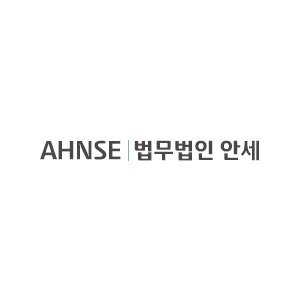Best Public-Private Partnerships (PPP) Lawyers in South Korea
Share your needs with us, get contacted by law firms.
Free. Takes 2 min.
Or refine your search by selecting a city:
List of the best lawyers in South Korea
About Public-Private Partnerships (PPP) Law in South Korea
Public-Private Partnerships, commonly referred to as PPPs, are collaborative projects between government agencies and private sector entities. In South Korea, PPPs have played a crucial role in developing infrastructure such as highways, railways, water treatment plants, energy facilities, and education facilities. The country has established a comprehensive legal and institutional framework for PPPs aimed at encouraging private sector investment, transferring know-how, improving efficiency, and sharing project risks between the public and private sectors.
South Korea's PPP framework is recognized as one of the most sophisticated in Asia, featuring clearly defined regulatory procedures, transparent procurement processes, and incentives to attract both domestic and international investors. The government actively supports PPPs as a way to enhance public service delivery and close the infrastructure gap. While the PPP model has brought many benefits, navigating the legal environment can be complex because of the intersecting interests and obligations of both parties.
Why You May Need a Lawyer
Engaging in PPP projects in South Korea involves navigating a web of intricate laws, regulations, and contracts. Whether you are a government entity, local business, or foreign investor, legal assistance is often necessary for several key situations:
- Interpreting and negotiating concession agreements, project contracts, and subcontracts
- Ensuring compliance with the Act on Public-Private Partnerships in Infrastructure and related regulations
- Understanding government incentive programs and risk allocation arrangements
- Managing disputes between public agencies and private consortium partners
- Handling procurement processes and tender documentation
- Addressing land acquisition, environmental clearances, or permitting issues
- Resolving tax, finance, and intellectual property considerations within a PPP project
- Facilitating regulatory approvals for foreign or cross-border investments
A lawyer with expertise in PPPs can ensure due diligence, minimize legal risks, and help parties achieve successful and compliant projects.
Local Laws Overview
The main legal basis for PPPs in South Korea is the Act on Public-Private Partnerships in Infrastructure (PPP Act), which provides guidelines for the planning, approval, implementation, and management of infrastructure projects involving private capital. This law applies to a wide range of sectors including transportation, water, energy, environmental projects, and social infrastructure.
Key elements of the local legal framework include:
- Project Eligibility and Approval: The PPP Act sets out criteria for selecting projects eligible for PPP delivery, including minimum investment size and strategic importance. All projects require approval from relevant ministries and authorities.
- Procurement Procedures: PPP projects may be initiated by the government (solicited projects) or private sector (unsolicited projects). Competitive tendering and transparent bidding processes are mandatory for most projects.
- Risk Allocation Mechanisms: The law details risk-sharing principles between the public and private partners, such as construction, operation, demand, and finance risks.
- Financial Incentives: The government can provide various supports, including minimum revenue guarantees, construction subsidies, and tax incentives to promote private investment.
- Contract Provisions: Concession agreements define terms such as project duration, termination events, compensation, performance standards, and dispute resolution mechanisms.
- Oversight and Reporting: Ongoing monitoring, audit requirements, and reporting obligations exist to ensure project transparency and public accountability.
Other relevant legal areas may include environmental law, labor law, tax law, and foreign investment regulations, especially for international participants.
Frequently Asked Questions
What is a typical PPP project in South Korea?
A typical PPP project might involve building and operating a highway, water treatment plant, hospital, or energy generation facility, where the private partner finances, constructs, and manages the asset under a long-term agreement.
Who regulates PPPs in South Korea?
The Ministry of Economy and Finance is the primary regulatory body overseeing PPP policy and implementation. Specific projects may also involve sectoral ministries and local government agencies.
Are foreign investors allowed to participate in PPPs?
Yes, foreign investors and companies can participate in PPP projects, subject to South Korea's foreign investment laws and any sector-specific restrictions.
What financial incentives are available for PPPs?
The government offers incentives like construction subsidies, minimum revenue guarantees, tax reductions, and access to low-interest loans for qualifying PPP projects.
What are the main legal risks in a PPP project?
Legal risks may include contract disputes, changes in law or policy, failure to obtain necessary permits, construction delays, revenue shortfalls, or early termination of agreements.
How are disputes resolved in PPP arrangements?
Dispute resolution is typically addressed in the project contract, often through negotiation, mediation, or arbitration, and in some cases, litigation in South Korean courts.
What is the typical duration of a PPP contract?
PPP contracts usually span from 10 to 30 years or longer, depending on the asset type, development timeline, and operational period.
Can a PPP project be terminated early?
Yes, early termination can occur due to default, force majeure, or other events specified in the contract. The agreement will also outline compensation mechanisms in such cases.
What legal due diligence is required before signing a PPP contract?
Due diligence typically covers financial feasibility, regulatory compliance, site acquisition, permitting, environmental assessments, and review of legal obligations by both parties.
Is government approval always required for PPP projects?
Yes, almost all PPP projects require approval by relevant government bodies, including feasibility studies, procurement documentation, and contract terms.
Additional Resources
Several organizations and resources can provide further information and guidance on PPPs in South Korea, including:
- Ministry of Economy and Finance (MOEF) - Primary government ministry for PPP policy and approvals.
- Public and Private Infrastructure Investment Management Center (PIMAC) - Provides project evaluations, market guidelines, and technical assistance.
- Korea Development Institute (KDI) - Conducts research and policy analysis on PPPs and infrastructure development.
- Korea Chamber of Commerce and Industry (KCCI) - Offers support for private sector participants in PPPs.
- Local law firms with expertise in infrastructure and government procurement
Next Steps
If you are considering involvement in a PPP project in South Korea or need legal advice relating to an ongoing project, consider the following steps:
- Define your project objectives and identify whether it qualifies under the PPP framework
- Gather all available information about the project and relevant stakeholders
- Consult with a legal professional experienced in South Korean PPP laws and regulations
- Request legal due diligence, especially if you are an investor or consortium lead
- Engage with the relevant government bodies early in the process to clarify compliance requirements
- Carefully review all draft contracts, risk allocation terms, and incentives offered
- Prepare for ongoing legal compliance and contract management after project commencement
Working with a knowledgeable lawyer can help you navigate the legal landscape, secure necessary approvals, negotiate favorable terms, and proactively address challenges that may arise during the PPP lifecycle.
Lawzana helps you find the best lawyers and law firms in South Korea through a curated and pre-screened list of qualified legal professionals. Our platform offers rankings and detailed profiles of attorneys and law firms, allowing you to compare based on practice areas, including Public-Private Partnerships (PPP), experience, and client feedback.
Each profile includes a description of the firm's areas of practice, client reviews, team members and partners, year of establishment, spoken languages, office locations, contact information, social media presence, and any published articles or resources. Most firms on our platform speak English and are experienced in both local and international legal matters.
Get a quote from top-rated law firms in South Korea — quickly, securely, and without unnecessary hassle.
Disclaimer:
The information provided on this page is for general informational purposes only and does not constitute legal advice. While we strive to ensure the accuracy and relevance of the content, legal information may change over time, and interpretations of the law can vary. You should always consult with a qualified legal professional for advice specific to your situation.
We disclaim all liability for actions taken or not taken based on the content of this page. If you believe any information is incorrect or outdated, please contact us, and we will review and update it where appropriate.
Browse public-private partnerships (ppp) law firms by city in South Korea
Refine your search by selecting a city.














